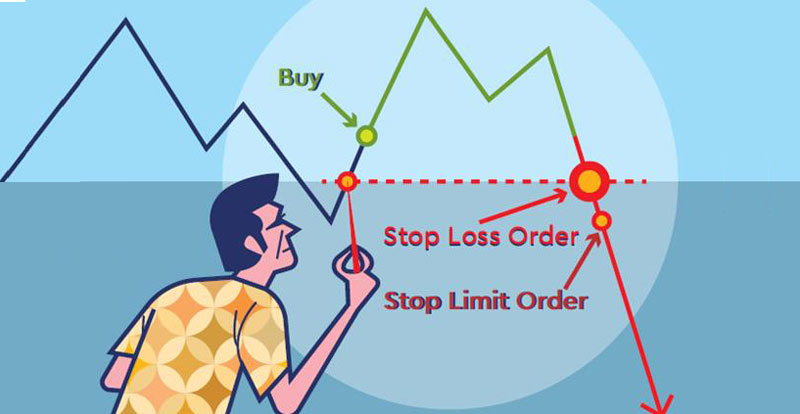Justifying the Price: Understanding Real Estate Agents' Commissions
Nov 29, 2023 By Susan Kelly
Advertisement
When it comes to buying or selling a home, hiring a real estate agent is often needed to ensure everything goes as smoothly as possible. While the presence of an agent serves as an invaluable resource, there’s much debate over the price they charge for their services. After all, when agents receive a commission of 5-6 percent on every successful deal they close – which can add up to thousands of dollars – it can seem like keeping that extra money could have gone in your pocket instead. However, understanding the amount of work and resources that go into completing each transaction quickly justifies any payment made towards a real estate agent’s fee. In this post, we will break down why their commissions are worth both your time and money!
What is real estate commission?

Real estate commission is a fee that is paid to a real estate agent for their services in facilitating the buying or selling of a property. This commission is typically a percentage of the total sale price and can vary depending on factors such as location, market conditions, and the specific agent's experience and reputation.
How the commission is split and who gets what?
The commission earned by a real estate agent is typically divided between the buyer's and seller's agents, with each receiving their respective share. The percentage split can vary depending on the agreement between the agents and their brokerages. In some cases, one agent may receive a larger portion if they handled more tasks or brought in the client.
The Role of a Real Estate Agent
A real estate agent's primary role is to act as a liaison between the buyer and seller in a real estate transaction. They are responsible for representing their client's interests, providing market expertise, and negotiating on their behalf. A good agent will also handle all of the administrative tasks involved in buying or selling a property, such as scheduling appointments, conducting showings, and drafting contracts.
Why their commission is justified?
While it may seem like a large sum of money, the work that real estate agents put into every transaction justifies their commission. For sellers, an agent will help prepare and market the property, conduct showings, handle negotiations, and coordinate all necessary paperwork. For buyers, they provide knowledge about the local market and available properties, negotiate on their behalf, and assist with all aspects of the buying process. In both cases, agents use their expertise to ensure a smooth and successful transaction for their clients.
The value of experience
Real estate agents also bring valuable experience to the table. They have an in-depth understanding of the local market, including current trends and pricing, which can be difficult to navigate without professional help. They also have access to a vast network of other agents, which can be crucial in finding the perfect home or buyer. Additionally, their experience can save clients time and money by avoiding potential pitfalls or costly mistakes.
Value Provided by Real Estate Agents

Aside from the tangible services provided by real estate agents, they also offer value in terms of peace of mind and security. Buying or selling a home is a significant financial decision, and having an experienced professional guide you through the process can alleviate stress and ensure everything is handled correctly. They also act as a buffer between parties, reducing emotional involvement and keeping negotiations on track.
The importance of representation
Real estate agents also provide valuable representation for their clients. They act as an advocate and guide, ensuring that the best interests of their client are always a top priority. Having someone on your side who is knowledgeable and experienced in the real estate market can make all the difference in a successful transaction.
Real Estate Transactions without an Agent
While it is possible to buy or sell a property without the help of a real estate agent, it comes with many risks and challenges. Without proper market knowledge and experience, individuals may struggle to accurately price their home or find the right property at the best value. Negotiating without an agent can also be intimidating and stressful for those not familiar with the process.
The hidden costs of not using an agent
In addition to the challenges, there are also potential hidden costs associated with not using a real estate agent. Without proper representation, individuals may end up paying more for a property than necessary or making costly mistakes during the transaction process. These hidden costs can far outweigh the commission paid to an agent and make their fee even more justified.
What happens when you decide to sell or buy without an agent?
If you decide to sell or buy a property without the help of an agent, you will have to take on all of their responsibilities yourself. This includes marketing and advertising your property, scheduling and conducting showings, negotiating with potential buyers/sellers, and handling all necessary paperwork. It can be a time-consuming and daunting process for those without experience in the real estate market.
Conclusion
While the commission paid to real estate agents may seem like a considerable expense, it is justifiable when considering the value they provide. From their market expertise and experience to their role as representation and advocate, real estate agents play a crucial role in ensuring a successful transaction. Attempting to buy or sell a property without their help can be risky and may end up costing more in the long run. So next time you work with a real estate agent, remember that their commission is well-earned for all the hard work they put into making your real estate goals a reality.
Advertisement







